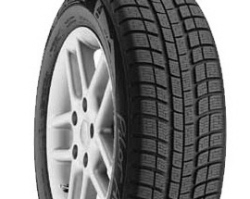I’ve received emails asking which all-wheel-drive vehicle to get, as the current car has trouble on snow and ice. On many forums, you’ll find similar questions. Well, the solution to dicey snow and ice driving isn’t usually a new car. Just new tires.
Two years ago I moved to a new house a few miles north of where I used to live. In the old neighborhood the city plowed the roads, and did so promptly. In the new neighborhood the county plows the roads, can can take five or six days to get around to it. So my first winter my Mazda Protege5 with performance all-season tires got stuck a few times, and couldn’t even get up my modestly inclined driveway if there was an inch of snow on it.
 The following fall I considered buying an all-wheel-drive vehicle to solve this problem, even making a slightly lowball offer on a Ford Freestyle. Then I decided to give winter tires a shot, in my case Michelin Pilot Alpin 2s from CostCo (they often have a $60 coupon). The PA2s are one of several performance winter tires you can buy. In terms of dry road handling, they’re way ahead of the snow tires of decades past.
The following fall I considered buying an all-wheel-drive vehicle to solve this problem, even making a slightly lowball offer on a Ford Freestyle. Then I decided to give winter tires a shot, in my case Michelin Pilot Alpin 2s from CostCo (they often have a $60 coupon). The PA2s are one of several performance winter tires you can buy. In terms of dry road handling, they’re way ahead of the snow tires of decades past.
And, you know what? I didn’t get stuck all winter, and the driveway was no longer a problem (though a running start remains helpful). Once out on the paved road, the winter tires provided an extra margin of safety during snow storms and whenever a patch of ice might pop up.
I made it through ten Detroit winters with all-seasons. Now I realize that this wasn’t so smart. Many people are very concerned about safety in their cars. But how many of these people buy winter tires? There are few if any better things you can do to increase safety in winter driving.
So why does all-wheel-drive get all of the attention? Probably because there’s more money to be made selling all-wheel-drive vehicles than selling winter tires. All-wheel-drive does make you much less likely to get stuck. But it does little for cornering grip, and nothing for braking. What use is the ability to get moving if you cannot stop?
Of course, the two aren’t mutually exclusive, as an all-wheel-drive vehicle can be fitted with winter tires. But for reasons of safety, I’d much rather have a two-wheel-drive vehicle with winter tires than an all-wheel-drive vehicle with all-seasons.
Since the Michelins are the only winter tires I’ve owned, I cannot comment on which are the best. All of them are much better than they used to be, and just about any of them should provide much better traction and grip on snow and ice than even a good all-season tire.
I’m writing this post because today we’re finally getting some real snow in Detroit — it’s been a warm winter. And I was finally happy to have changed over to my winter tires in early December.